Before 2013 marches on any further, the stirring conclusion to my book list… In 2012, I read 27 books. Here are numbers 1-10 in the order of most to least inspiration, pleasure, ideas and word-love derived.
(1) and 2)
I worked my way through Volumes 1-6 of the Diary of Anais Nin this year, which I found to be lyrical, compelling, idea-inspiring.
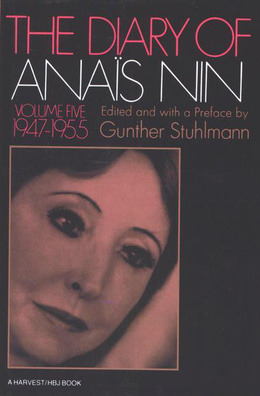 The Diary of Anaïs Nin, Volume 2, 1934-1939 (1967)
The Diary of Anaïs Nin, Volume 2, 1934-1939 (1967)
Volume 2 was my favourite. Expansiveness as a writer, thoughts on the woman artist. Begins in jazzy New York City, taking on Otto Rank’s patients as an apprentice analyst. Then her return to Paris, her “romantic life” in the houseboat, friendship with Durrell & Henry Miller and the mooching Gonzalo. Reality intruding via the Spanish Civil War and the first stirrings of WWII. Favorite quote from Volume 2 here.
The Diary of Anaïs Nin, Volume 1, 1931-1934 (1966)
The beginning of it all: Louveciennes, meeting Henry Miller, café life, reconciliation with her father, initiates psychoanalysis, miscarriage… A choice quote here.
(3) Fun Home (2006) – Alison Bechdel
A book that couldn’t exist in any form but the graphic novel. The interplay between 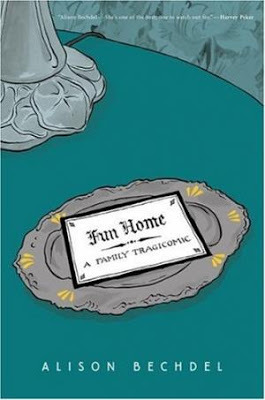 image and text is layered, each panel precise and necessary. I was amazed at how she was able to transmit the confusion and complexity of being a child and adolescent: how the historical time, family history and your personal development (body & mind) all mixes together, while figuring out questions of sexuality, gender and selfhood. The specificity of a time and the great looming role your parents play in it. Literature weaving through it as it did through her relationship with her father. Absorbing, moving, funny.
image and text is layered, each panel precise and necessary. I was amazed at how she was able to transmit the confusion and complexity of being a child and adolescent: how the historical time, family history and your personal development (body & mind) all mixes together, while figuring out questions of sexuality, gender and selfhood. The specificity of a time and the great looming role your parents play in it. Literature weaving through it as it did through her relationship with her father. Absorbing, moving, funny.
(4) This Is How You Lose Her (2012) – Junot Díaz
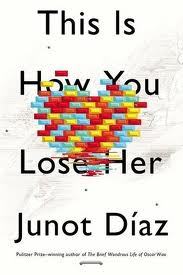 I found this collection to be a bit uneven compared with Drown. The very last story, for example, just sounds like Díaz sitting down & telling you about how he fucked up his love life over a couple of beers, which is entertaining enough, but lacks his magic touch. This book is near the top of my list because of the story “Invierno”, which was so gripping, vivid, & true. It got inside me unlike any other short story I’ve read recently.
I found this collection to be a bit uneven compared with Drown. The very last story, for example, just sounds like Díaz sitting down & telling you about how he fucked up his love life over a couple of beers, which is entertaining enough, but lacks his magic touch. This book is near the top of my list because of the story “Invierno”, which was so gripping, vivid, & true. It got inside me unlike any other short story I’ve read recently.
(5) The Philosophy of Andy Warhol (1975)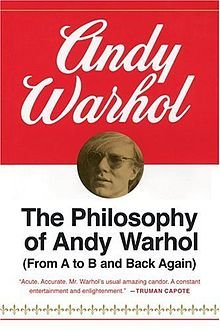
Andy Warhol on beauty, art, sex, aging, celebrity. Very funny, very charming. More thoughts here. Favorite Andy quotes here.
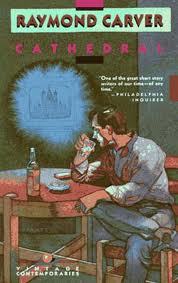 (6) Cathedral (1983) – Raymond Carver
(6) Cathedral (1983) – Raymond Carver
This was a re-read for me “Cathedral” and “Feathers” are two of my Carver stories. More complete thoughts here.
(7) and (8)
The Diary of Anaïs Nin, Volume 3, 1939-1944 (1969)
The Diary of Anaïs Nin, Volume 4, 1944-1947 (1971)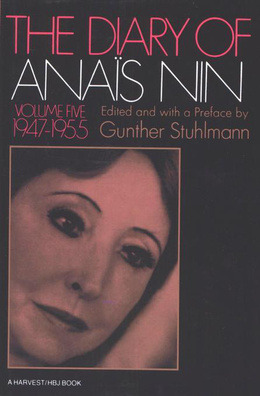
These volumes cover her displacement from Paris during World War II; frustration at the United States, its attitudes towards literature and selfhood. Quote from Volume 4 here. Volume 3 quote here.
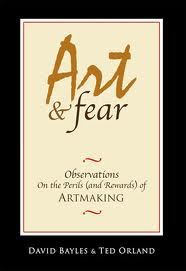 (9) Art and Fear: Observations on the Perils (and Rewards of) Artmaking (1993) – David Bayles and Ted Orland
(9) Art and Fear: Observations on the Perils (and Rewards of) Artmaking (1993) – David Bayles and Ted Orland
Primarily addressed to visual artists, but for anyone trying to keep up their creative life. Draws attention to process as the primary purpose & function of art-making, in a timeless way. A brilliantly concise history of the various cultural definitions of art & the conundrum artists face today. (Art being defined as a vehicle of individual expression and art about art being the highest intellectual ideal…. Much in the way that writing about writing will get you the most points in academic circles.)
(10) Will You Please Be Quiet Please? (1976) – Raymond Carver 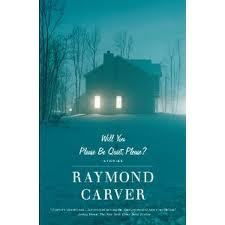
Carver’s very first book of short stories. Comforting to see that a couple of them are duds (“Bicycles, Muscles, Cigarettes”), but of course the majority are knock-outs. I especially love “What’s in Alaska?”, “Fat” and “Jerry and Molly and Sam”.

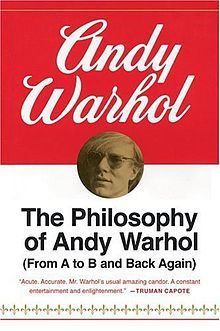 For all his masks, truth-as-quips, posturing, disingenuousness, I feel some of Andy Warhol the person comes through in this book. It’s also really funny. He outs himself as a serious sugar fiend (being rich means having money to buy candy), often refers to his burning desire to have his own TV show called “Nothing Special” (why didn’t they give that man a TV show?!). He confesses a preference for “Talkers” over “Beauties” (Talkers do, Beauties are), for bad performances over good performances (it’s impossible for bad performances to be phony), an obsession with perfumes, trapping memories through scent.. I do think his love of all things American is genuine. (Wikipedia informs: “The Philosophy was ghostwritten by Warhol’s secretary Pat Hackett and
For all his masks, truth-as-quips, posturing, disingenuousness, I feel some of Andy Warhol the person comes through in this book. It’s also really funny. He outs himself as a serious sugar fiend (being rich means having money to buy candy), often refers to his burning desire to have his own TV show called “Nothing Special” (why didn’t they give that man a TV show?!). He confesses a preference for “Talkers” over “Beauties” (Talkers do, Beauties are), for bad performances over good performances (it’s impossible for bad performances to be phony), an obsession with perfumes, trapping memories through scent.. I do think his love of all things American is genuine. (Wikipedia informs: “The Philosophy was ghostwritten by Warhol’s secretary Pat Hackett and 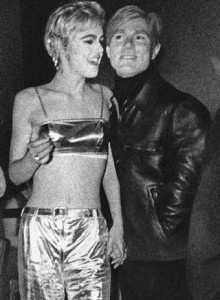 “During the 60s, I think, people forgot what emotions were supposed to be. And I don’t think they’ve ever remembered. I think that once you see emotions from a certain angle you can never think of them as real again. That’s what more or less happened to me.
“During the 60s, I think, people forgot what emotions were supposed to be. And I don’t think they’ve ever remembered. I think that once you see emotions from a certain angle you can never think of them as real again. That’s what more or less happened to me.